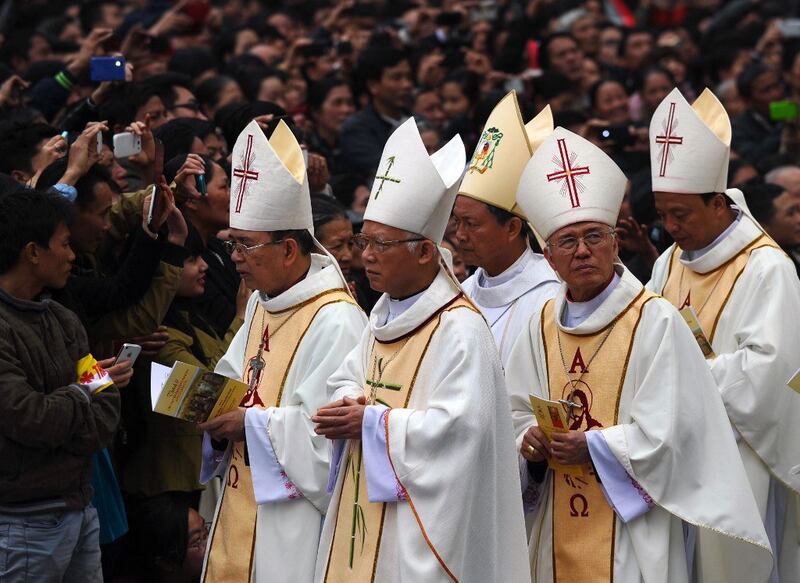Religious leaders in Vietnam have asked the U.S. government to punish Vietnamese officials involved in religious persecution activities, calling for use of the Global Magnitsky Act to sanction those involved in human rights violations.
Representatives from the Interfaith Council of Vietnam met with American diplomats and an official from the U.S. Commission on International Religious Freedom commissioner at Giac Hoa Pagoda in Ho Chi Minh City on Thursday.
Officials from Catholicism, Buddhism, Hoa Hao Buddhism, Caodaism and Protestantism urged the Biden administration to make use of a 2016 law, named after a Russian anti-corruption whistleblower, that allows the United States to freeze the assets of foreign government officials and ban them from entering the U.S.
Hua Phi, the administrative clerk of the Caodai religion, told Radio Free Asia that he had to leave his home in the central province of Lam Dong three days in advance of the meeting to avoid police surveillance.
Security forces prevented him from traveling to an Interfaith Council of Vietnam meeting in April, he said.
RFA emailed the People’s Committee of Duc Trong district to seek a response on Hua Phi’s allegations but didn’t receive a response.

Earlier in the week, the U.S. State Department criticized violations of religious freedom in Vietnam, saying in an annual report that the country’s legal framework “provides for significant government control over religious practices.”
Vietnamese law also "includes vague provisions that permit restrictions on religious freedom in the stated interest of national security and social unity," according to the 2022 International Religious Freedom Report, which provides an overview of the state of religious freedom in nearly 200 countries and territories around the world.
Vietnam’s Ministry of Foreign Affairs dismissed the report on Thursday, saying it was “lacking in objectivity.”
Compliance with the law in Vietnam includes registering the religion with the government. Currently the government has recognized 36 religious organizations belonging to 16 religions that include Buddhism, Catholicism, Protestantism, Caodaism, Hoa Hao Buddhism, Islam and Baha’i.
Those belonging to unrecognized religions are not allowed to operate freely. Hanoi considers the unregistered groups to be illegal and law enforcement has prevented these groups from meeting or carrying out religious rituals or ceremonies.
Translated by Anna Vu. Edited by Matt Reed.
